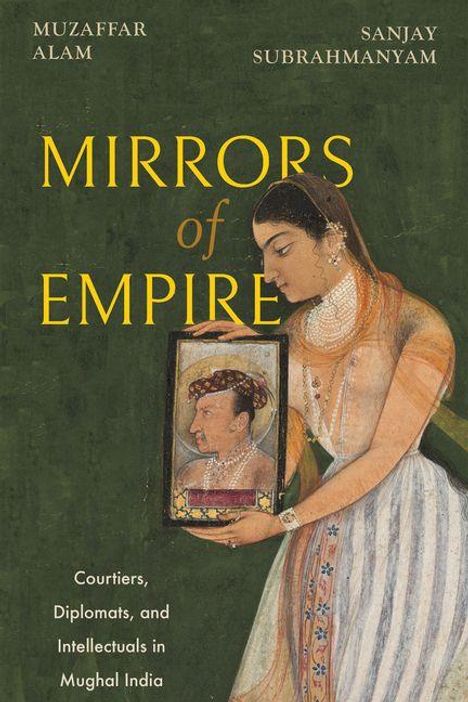Muzaffar Alam: Mirrors of Empire, Gebunden
Mirrors of Empire
- Courtiers, Diplomats, and Intellectuals in Mughal India
(soweit verfügbar beim Lieferanten)
- Verlag:
- SUNY Press, 02/2026
- Einband:
- Gebunden
- Sprache:
- Englisch
- ISBN-13:
- 9798855805604
- Artikelnummer:
- 12416350
- Umfang:
- 474 Seiten
- Gewicht:
- 831 g
- Maße:
- 229 x 152 mm
- Stärke:
- 31 mm
- Erscheinungstermin:
- 1.2.2026
- Hinweis
-
Achtung: Artikel ist nicht in deutscher Sprache!
Klappentext
Approaches the history of the Mughal Empire at the level of human experience, through a diverse group of autobiographical narratives. Starting from 1526, the Mughals ruled over much of India for three centuries, perhaps the most important Islamic empire in the early modern world. This period saw the production of a fascinating variety of memoirs and autobiographies in which residents of the empire reflected on their own lives, on Islam in a Hindu context, and on the relationship of individual subjects to their new rulers. Those written by Mughal royalty-especially Babur and Jahangir-are well known. This book considers the less well-known writings of diverse others, from the poet laureate Faizi to those who were not part of elite society but a few notches below it, such as the lowly envoy Asad Beg and characters like Mirza Nathan and Abdul Latif, who lived dangerously on the Bengal frontier. Also considered are prolific Hindu writers, such as Bhimsen Saksena and the witty Anand Ram Mukhlis, who lived in Delhi through the turbulent 1730s and 1740s. Together, they offer an original and differently critical perspective on the empire-its religious, social, and political tensions, as well as its strategies for overcoming them. Covering over two centuries of such materials, Mirrors of Empire is a work of cultural history that is also firmly rooted in social history. It incorporates extensive translations from Persian, including materials that are little-known even to historians and specialists, and shows the transformation of the empire from its difficult emergence, to its expansive height, to its phase of disintegration in the middle of the eighteenth century. Gracefully written, the book approaches the Mughal Empire at the level of human experience, rendering it accessible and not a mere abstraction.

